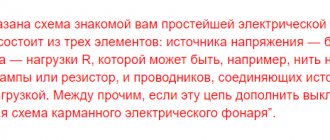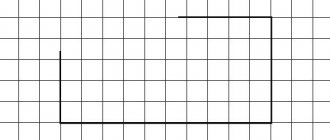Treatment
Bed capacity of the Center:
Hospital with 24-hour stay for patients - 80 beds;
Day hospital – 60 places; Hospital at home – 100 beds; Children's department - 150 visits per shift. Structure of the Center for Speech Pathology and Neurorehabilitation:
1. Consultative and diagnostic department 2. Specialized inpatient department with 80 beds. 3. Day hospital for patients with consequences of stroke and neurotrauma on the 30th month 4. Hospital at home for patients with speech disorders and other higher mental functions. 5. Day hospital for adults with logoneuroses at 30 months 6. Phoniatric. department 7. Children's department 8. Department of functional diagnostics. 9. Department of Clinical Psychology. 10. Department of physical therapy and massage. 11. Physiotherapy department with hydropathic clinic. 12. Office of social, domestic and labor rehabilitation. 13. Organizational and methodological department.
Consultative and diagnostic department Objectives of the department:
1. Outpatient examination and counseling of patients referred to the Center for Pregnancy and Prevention. 2. Establishing the form and severity of speech disorders. 3. Assessment of the psycho-neurological and somatic condition of patients in order to determine indications and contraindications for treatment at the Center. 4. Preparation of medical documentation of patients examined by department specialists for the selection committee.
Indications for referral for examination, treatment and neurorehabilitation to the Center:
- speech disorders and other higher mental functions resulting from focal brain lesions - stroke, traumatic brain injury, cancer, infectious, toxic and other diseases in combination with or without musculoskeletal disorders; - stuttering and other speech communication disorders.
to the hospital and outpatient
department of the Center for Staged Rehabilitation Treatment:
- those with a favorable prognosis regarding the restoration of impaired functions of systems and organs and return to work; - capable of movement and self-care.
Contraindications for referral to the Center are:
mental disorders (including psychoses, dementia, severe forms of neuroses and decompensation of psychopathy, epilepsy with frequent seizures, alcohol and drug addiction), causing antisocial behavior of patients;
severe impairment of motor functions, leading to the impossibility of self-care and independent movement of patients; severe hearing and vision disorders that interfere with the neurorehabilitation process; all diseases in the acute stage; chronic somatic diseases in the stage of exacerbation or decompensation; infectious and venereal diseases; malignant neoplasms; cachexia of any etiology; decompensated diabetes mellitus; all forms of tuberculosis in the active stage; circulatory failure II B-III; life-threatening heart rhythm and conduction disorders Department of hospital at home for patients with speech disorders and other higher mental functions
The course of treatment in the “Hospital at Home” is 90 days.
Examination of patients at home by neurologists and therapists 2 times a month. Depending on the psychosomatic state of the patient, speech therapy classes are conducted from 1 to 3 times a week, for a total of 12 to 36 classes per course. The department provides comprehensive and pedagogical activities aimed at restoring higher mental functions, sanitary and hygienic skills, independent movement and self-care of patients. Inpatient care at home is intended for patients with speech disorders and other higher mental functions, suffering from other concomitant somatic and psychosomatic diseases that interfere with independent movement, self-care, causing certain difficulties in mental and social adaptation, excluding active rehabilitation. Rehabilitation at home is prescribed by the selection committee of the Center after the patient has undergone examination in the consultative and diagnostic department. Patients are admitted for treatment as planned. Patients are referred to the selection committee by specialists from medical institutions after the end of the acute period of the disease.
Specialized inpatient department with 24-hour stay for patients .
The department has 80 beds. Patients are accommodated in 1, 2 and 6-bed wards. The course of treatment is 45 days, according to indications - 90 days. Carries out a complex of treatment and rehabilitation, medical, pedagogical and psychological measures to restore higher mental functions, including speech, communication and communication disorders, as well as disorders of the musculoskeletal system that occur in patients who have suffered a cerebral infarction, severe craniocerebral trauma and other focal brain lesions. The department provides medication treatment, individual (including computer classes) and group speech therapy classes (including music therapy), psychotherapy, physical therapy, massage, physiotherapy, reflexology, occupational therapy and other methods. The department employs highly qualified specialists: neurologists, psychiatrists, therapists, functional diagnostics doctors, otolaryngologist, dermatologist, reflexologists, neuropsychologists, speech pathologists, speech pathologists, etc.
Day hospital for patients with consequences of stroke and neurotrauma for 30 beds.
The day hospital provides treatment and neurorehabilitation of patients with the consequences of cerebral infarctions, neurotrauma, who are capable of independent movement around the city. The average duration of treatment in a day hospital is from 45 to 90 days with a frequency of visits depending on the physical condition from 2 to 5 times a week. The day hospital provides 2 meals a day. The department provides medication treatment, individual and group speech therapy sessions (including music therapy), psychotherapy, physical therapy, massage, physiotherapy, reflexology, occupational therapy and other methods. The department employs highly qualified specialists: neurologists, psychiatrists, therapists, functional diagnostics doctors, otolaryngologist, dermatologist, reflexologists, neuropsychologists, speech pathologists, speech pathologists, etc.
Day hospital department for adult patients with logoneuroses.
The department is intended for complex treatment and rehabilitation of patients with logoneuroses (stuttering, etc.).
The department is designed for simultaneous stay of 30 patients during the day. The course of treatment is 90 days, of which: 45 in a day hospital and 45 days in outpatient groups, which function 3 times a week in the evening (from 18 to 21). Patients are formed into groups, the composition of which does not change during the course of treatment (closed groups). A set of medical and pedagogical activities carried out in the department: group and individual classes with psychologists, psychotherapists, speech therapists; physiotherapy, acupuncture, drug treatment, hydrotherapy. Upon admission to the day hospital and discharge from it, an expert assessment of the patients’ condition is carried out
(assessment of speech function and fixation on the speech defect) with subsequent recommendations from the department’s specialists.
Department of Phoniatry . The department accepts for treatment patients with voice disorders of various origins:
— Paresis and paralysis of the larynx after operations and traumatic lesions, as well as after strokes; — nasalization of the voice after surgery on the upper jaw; — hoarseness, weakness of voice after acute and chronic laryngitis; - functional disorders after nervous stress; — age-related and endocrine changes in voice; - restoration of sonorous speech after removal of the larynx.
The department is equipped with modern diagnostic and treatment equipment (fiberscopes, stroboscopes, audiometer, ultrasound coagulator, etc.). Patients receive complex therapy (drug treatment, individual phonopedic sessions, psychotherapy, physiotherapy, etc.). Treatment is carried out on an outpatient basis, the course of treatment is up to 45 days
Department for children and teenagers.
Intended for consultative, diagnostic, therapeutic, pedagogical and psychological assistance to children and adolescents with severe and combined speech disorders, including stuttering, dysgraphia, dyslexia, speech delays and general speech underdevelopment, severe and moderate dysarthria, as a complication of birth injuries, as well as postnatal, local damage to the central system due to traumatic brain injury, stroke and cerebral infarction. The department has highly qualified specialists in the field of speech therapy, psychology, neuropsychology, psychiatry, neurology and pediatrics - doctors and teachers of the highest category, candidates and doctors of sciences. The specialists of the department provide outpatient supervision of children in the form of consultations, courses of group and individual speech therapy and psychological classes, observation of the dynamics of the rehabilitation process under the control of clinical and functional research methods.
Contraindications for treatment in the department are:
- mental retardation, epilepsy, schizophrenia in the acute period, reactive states; - severe hearing and vision impairment; - diseases of the central and peripheral nervous systems, leading to severe disorders in the musculoskeletal system; - general and skin infections; - somatic diseases in the stage of decompensation.
Children with:
- initial stuttering; - relapse of stuttering after a course of treatment; - severe form of stuttering; - alalia.
Children from large families, orphans, and children 6 years old (going to school) have the advantage of enrolling in coursework.
To register for an initial examination for a child, you must prepare the following documents:
1. Referral from the local doctor and speech therapist of the territorial clinic 2. Conclusion of the speech therapist. 3. A detailed extract from a neurologist or psychiatrist (outpatient clinic). 4. EEG (electroencephalogram). 5. Insurance policy.
Department of Functional Diagnostics . Diagnostic methods:
1. Electroencephalography: A) with visual processing (traditional chamber recording of EEG) B) with computer processing and mapping of the rhythm spectrum, which allows objective identification of focal post-stroke, post-traumatic changes, epifoci (cameraless recording). 2. Echoencephalography. 3. Electroneuromyography. 4. Ultrasound Dopplerography of the vessels of the brain and the great vessels of the neck. 5. Registration of constant brain potentials (indirect assessment of the level of metabolism in the brain). 6. Electrocardiography. 7. Rheoencephalography with computer processing. 8. Rheovasography. 9. Ultrasound of internal organs. 10. Transcranial magnetic stimulation (to determine the degree of motor deficit in the limbs).
Department of Clinical Psychology.
The department is a structural subdivision of the Center for Pregnancy and Neuroscience, created to solve a wide range of practical problems: psychodiagnostic, psychoprophylactic, correctional and restorative, advisory. The responsibilities of medical psychologists include: conducting neuropsychological, pathopsychological, personality-typological diagnostics of patients; development, together with other specialists of the Center, of rehabilitation programs (rehabilitation training programs, psychocorrectional and developmental classes); conducting individual and group classes with patients of the Center; carrying out dynamic observations of patients (for the purpose of timely correction and optimization of rehabilitation programs); assessing the effectiveness of therapeutic, psychological and pedagogical measures; counseling patients' relatives.
Department of Physical Therapy and Massage.
The department participates in a comprehensive program of rehabilitation treatment of the patient, the main task of which is the maximum restoration of impaired functions and the development of substitution-compensatory mechanisms that further determine the degree of social and labor adaptation of patients; uses all possible means and forms of physical therapy during the treatment process. The department provides group (45 min.) and individual (30-60 min.) classes; Classes are practiced with one patient 2 times a day for 25-30 minutes. Classes are held with relatives of patients to teach a complex of therapeutic exercises, which should be performed at home. The complex of rehabilitation measures uses the method of dynamic propriocorrection using the “Gravistat” medical suit. The Ballance technique has been introduced into the complex of rehabilitation treatment for patients with ataxia. The department is equipped with modern highly effective simulators. In the absence of contraindications, patients are given courses of manual classical massage. The massage procedure is compiled individually for each patient, depending on the purpose of the massage, taking into account the nosological form of the disease and its clinical picture, as well as the patient’s age and somatic pathology.
Department of Physiotherapy.
The department is equipped with all the necessary equipment that allows physiotherapeutic treatment with a wide variety of techniques (electrotherapy, light therapy, magnetic therapy, laser therapy, etc.). In the process of physiotherapy, the main attention is paid to the use of various techniques, their differentiation depending on the nature of the motor defect, the severity of impaired functions, the location of the lesion, the stage of treatment and the presence of concomitant diseases. Various methods of reflexology are widely used: acupuncture, moxibustion, laser and pharmacopuncture, Su-Jok therapy, scalpuncture, etc. The hydropathic clinic offers therapeutic showers and hydromassage.
Office of social, domestic and occupational rehabilitation (ergotherapy).
The office is designed to restore the work, everyday and social activity of patients with disorders of higher mental and motor functions. The office contains premises equipped with the necessary equipment, manuals, and materials for conducting rehabilitation treatment for patients with motor and speech disorders. Occupational therapy classes are conducted in conjunction with speech therapy individual and group classes.
Organizational and methodological department for speech therapy of the Moscow Department of Health (adult network).
Heads the specialized service of the city of Moscow. Carries out the preparation and certification of speech therapists in Moscow within the framework of the commission for certification of teaching staff working in the healthcare system of the Moscow Department of Health. Every month he holds city conferences on the organization of specialized care in various medical institutions of the city, lectures and clinical discussions. Methodologists of the organizational and methodological department provide consultations to patients and provide the necessary methodological and organizational assistance to specialists. Much attention is paid to the selection and training of personnel to staff specialized rooms. City health care facilities. Quarterly sums up and analyzes the results of the work of specialists at all levels carrying out step-by-step comprehensive neurorehabilitation. Conducts scheduled inspections of the work of specialists at their workplaces. Specialists of the organizational and methodological department have created and maintained a Data Bank of patients who have suffered focal brain lesions and have disorders of higher mental functions, including speech, which makes it possible to trace the stages and dynamics of treatment for this group of patients. Much attention is paid to preparing, conducting and participating in scientific and practical conferences, congresses, and seminars.
Denunciations against doctors. How the Center for Speech Pathology and Neurorehabilitation is being destroyed
State Budgetary Institution “Center for Speech Pathology and Neurorehabilitation” is a unique institution throughout the country. For more than 50 years, this Center has been the main salvation for people with speech disorders and cognitive impairments that appear due to stroke or traumatic brain injury; comprehensive rehabilitation is free for Muscovites. But at the end of last year, the new management of the center embarked on a path of fundamental changes that could turn the unique institution into an ordinary psychiatric dispensary, patients say.
The old team of the clinic was dispersed: many had to quit against their own will, “by agreement of the parties.” The quality of treatment has dropped noticeably. Patients and former employees of the center are confident that the new management has put in first place not the health of patients, but earnings from paid services, which are becoming more and more numerous.
Center for Speech Pathology and Neurorehabilitation
Anna Zimina, contacted Radio Liberty . Anna’s mother underwent rehabilitation at the clinic after a stroke, but this year the center’s commission told her that the next course would be her last, since the clinic was changing its profile to psychiatric. Last fall, psychiatrist Roman Cheremin became the new chief physician of the clinic. He replaced Yuri Fukalov in this post, who worked at the Center together with the founder of the clinic, Viktor Shklovsky.
Both Shklovsky and Fukalov still work at the clinic, but do not make key decisions
Shklovsky is a specialist in the field of clinical psychology, speech pathology and neurorehabilitation, president of the All-Russian National Association of Neurorehabilitation Scientists, academician of the Russian Academy of Education. But he is almost 90 years old. Both Shklovsky and Fukalov still work at the clinic, but are no longer in leadership positions and do not make key decisions. In the fall of this year, new leadership from the field of psychiatry came to the center, after which rumors immediately began to circulate about impending changes in work.
Anna Zimina, having learned about these changes, created a petition addressed to the Minister of Health of the Russian Federation, Veronika Skvortsova, demanding to stop the transformation of the clinic. Soon after this, a refutation of the information published by Anna appeared on the center’s website; the petition was called “a lie and a provocation”: the official message stated that the center would not be closed and the psychoneurological profile would not be changed. The management invited Zimina herself to a personal meeting, where they also promised that the volume and quality of services would not change. However, she soon began to learn from former employees of the center and patients that changes were still happening, and they were quite significant.
Doctors were given an unofficial order to transfer everyone to paid services
“The rehabilitation course and the number of sessions with specialists were reduced, and old employees were fired,” says Anna. – Doctors were given an unofficial order to transfer everyone to paid services. A number of services that were previously free are now available only for money. According to doctors, primary patients are mainly taken to a 24-hour hospital, but repeated rehabilitation is denied, and they are sent to a day hospital. Despite the fact that most patients are not able to reach them themselves. My mother, for example, won’t be able to do it herself.
After that, Anna created a group on Facebook, where people who were not indifferent to the fate of the center gathered. She also wrote an appeal to the Department of Health to figure out what was happening with the center. The department told her that the situation regarding re-hospitalizations would not change, and the number of services would not change either.
Former employees of the center told Radio Liberty that the new management is focusing on day care, apparently not fully understanding the specifics of the patients. Transferring to a day hospital certainly saves budget money, since it is quite expensive to keep patients in a 24-hour hospital for 45 days. However, due to illness, patients of the center are often unable to come there every day on their own. Former employees also believe that the new management did not delve into the specifics of the Center’s work and is simply carrying out the task of reorganizing the clinic.
A 70-year-old man returned to work after a severe stroke. He just flew like a bird
“My relative underwent a rehabilitation course in May 2022,” says Elena Ivanova . “About ten specialists worked with him at that time. A 70-year-old man returned to work after a severe stroke. He just flew like a bird. Then things got worse and I got back on the waiting list. In February of this year, they called us and warned us that the course now lasts not 45 days, but a month. This time only three doctors worked with him. He only got worse, I immediately wrote an appeal to the Ministry of Health, it was a cry from the heart. Just before the elections. All the men in his ward were deeply outraged by the ugly situation in the center. A month later we were discharged and offered to go to a day hospital for another two weeks. I realized that this was the result of my application - they were not offered to anyone else. We refused because he wasn't getting better and I couldn't quit my job to take him there every day.
In response to Elena Ivanova’s appeal, the Department of Health responded that the patient was provided with medical care in the required volume, no violations of the procedure for providing medical care were established and “there are no changes in the quantity and quality of medical services provided by the Center.”
Speech therapist Lyubov Yakovleva , who worked at the Center for 45 years, explained that a course of 45 days is a completely reasonable period. The examination of patients alone used to last about two weeks.
Now neither patients nor experienced specialists are needed
“We had very serious, difficult patients,” says Yakovleva. – It takes time to examine a person and write a good treatment program. And now neither patients nor old experienced specialists are needed. I hear from my former patients that they no longer want to come to our center because it is now pointless.
Reducing the course and number of specialists is not the only thing that worries patients. With the arrival of new management, rumors began to circulate that the center would change the profile of medical services from psychoneurological to psychiatric. Despite the fact that the management denied changing the profile of the institution, the center’s profile was recently changed on the website of the Moscow Department of Health. This is a significant change for patients, some of whom specifically avoided psychiatric institutions.
A technique designed for a stroke patient will never help a child with early autism
“Until the center declared itself completely psychiatric, people with severe mental illnesses never came there,” says Yulia Egorova , her three-year-old child underwent rehabilitation at the center last year. – In 2022, this was the reason for refusal to participate in the rehabilitation course, because the technique, which is designed for a stroke patient, will never help a child with early childhood autism. The method of this center is completely unsuitable for children with severe mental illness. Now the center is focusing on psychiatry. When we passed the commission this year, there was no longer a neurologist on it. Although my child has a neurological diagnosis, not a psychiatric one.
According to Yulia, free diagnostics at the center are gradually becoming paid. Despite the fact that before starting a rehabilitation course it is necessary to undergo an examination and doctors themselves recommend doing this, more and more services now need to be paid for independently.
Cleaning up the old team
According to the clinic's doctors, with the arrival of new management, the old employees began to survive. Some resigned employees told Radio Liberty how they were forced to leave the Center.
Speech therapist Elena T. (name changed - RS) became one of the first who had to leave the Center. Last December, she saw a petition written by Anna Zimina in defense of the clinic, signed it and sent a link to it to her colleagues. But the mailing list included a psychiatrist who reported this to the chief physician.
Cheremin theatrically said that I do not suit them for ethical reasons, because of the petition
“I was called to the head physician Cheremin, the entire administration was there,” says Elena. – Cheremin theatrically said that I did not arrange them for ethical reasons, because of the petition. I refused to sign the resignation letter because I don’t think I did anything shameful. I returned to the department and continued working. Almost immediately, my department leaders began to be called to see Cheremin. They returned from him sad and said that they were threatened with dismissal.
According to Elena, after this, the deputy chief physician for psychological and speech therapy work, Olga Serebrovskaya, began writing memos to her. In these denunciations there were no complaints about the quality of care provided to patients, but only comments regarding typos in the documentation: incorrect endings and so on. As the speech therapist says, such denunciations were written not only against her, but also against other doctors who were about to be fired.
I realized that our department would be terrorized until I left.
“I had to somehow respond to these denunciations,” says Elena. – Yes, there were these typos, but they appeared more likely from inattention or because of haste. It became clear to me that all this would gain momentum. I realized that our department would be terrorized until I left. And since people signed the petition that I sent out, management had to punish someone. In addition, it was hard for me to see how my teachers were fired and how attitudes towards patients changed. That's why I signed a letter of resignation.
Neurologist Victoria worked at the Center for seven years; in March of this year, she was forced to sign a document terminating her employment contract by agreement of the parties. According to her, since layoffs began at the clinic, complaints began to be filed against her regularly and monetary fines were imposed.
I didn’t see a chance to stay, because every second person gets fired at the drop of a hat
“They assigned me to another doctor’s office,” says Victoria. – My work schedule is from 9 o’clock to 16.40, and at 15.00 another doctor began to see me in my office. Everyone knew about this: both the manager and management. That’s why I came to work earlier and started seeing patients earlier. Sometimes, by three o’clock I had time to do everything in order to free up the office for another doctor. One day, when I left ahead of schedule, an inspection came and I was fined. Nobody cared at all that I started working earlier. Since the Center’s management had previously not responded to my requests to sort out unfair complaints and fines, I went to the Center’s founder, Viktor Markovich Shklovsky, and asked to help me. After that, the chief doctor called me and said: “You have two days, you are fired.” They explained to me that the main reason was not that I left work earlier, but that I went to Viktor Markovich. I was told to sign a document terminating the contract by agreement of the parties with payment of one salary and compensation for 24 days of vacation. I didn’t see a chance to stay there, because every second person was fired on a whim. By that time, I was already so exhausted by these conflicts that I decided to simply sign this document.
Psychiatrist Natalya Chebotareva worked at the Center for three years, and when she was told that she had to quit, she did not argue with the new management. Employees had already been fired before her, so when she was called to the chief doctor, she already knew the reason.
Every month a certain number of employees left. A department was taken, and employees were released from there
“Completely unexpectedly, on an ordinary working day, I was called to the chief doctor,” says Natalya. “He tells me with a very benevolent smile: “You will have to find another place of work. If you agree, we will pay you a bonus." Employees have been fired using the same scheme before; I was not the first. We were, in principle, ready for the cuts to begin: the institution is a budgetary institution, it was also affected by the healthcare optimization program. We just assumed that it would be fair. If we had been laid off due to layoffs, then there would have been more financial support. Every month a certain number of employees left, everything happened according to plan. A department was taken, and employees were released from there. Our first branch was closed this year.
Speech therapist Lyubov Yakovleva , who worked at the Center almost from its founding, quit the Center herself because it became unbearable to continue working under the new management.
We restored patients after Afghanistan, after Chechnya. And many of the guys later started families
“The situation was not the best: people were fired simply because they had worked there for a long time,” says Yakovleva. “I couldn’t stand it and left on my own.” But I left not because I wanted to, but because it became unpleasant for me to work there. The situation that developed with the arrival of the new leadership did not allow us to work. I left, but it hurts me so much that all this was destroyed in less than a year. We returned patients' relatives to work because our patients, after rehabilitation, could take care of themselves and could say something. We restored patients after Afghanistan, after Chechnya. And many of the guys later started families. The uniqueness of this Center was that it had a warm atmosphere for patients. We could often extend the course for a patient if we saw that he was doing well. Now I feel very sorry for our leader, Professor Shklovsky. This is his brainchild, which he has nurtured for many years. If I devoted 45 years to this work, then he devoted even more. He put his life into creating this Center, which is now destroyed.
The Moscow Department of Health did not respond to a request from Radio Liberty.
We believe that our patients cannot recover in either 45 or 90 days
“All the doctors mentioned in the material actually worked at the center, but their dismissal is due to the fact that their professional qualities do not meet the requirements now imposed on employees,” Roman Cheremin, . – About reducing the length of stay in the hospital. We believe that our patients cannot recover in either 45 or 90 days, so we are trying to build a system in which the patient must remain for the maximum period, which is calculated not in days, but in years. And depending on how the treatment progresses, a decision is made whether patients need further help from us or not. Nothing good will come from the fact that everyone will be in the clinic for 45 days: some need more, some less.
Relatives of patients who were treated at the clinic say that the famous center for speech pathology and neurorehabilitation no longer exists, and there is no worthy replacement for it.





